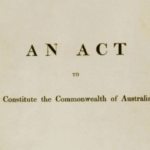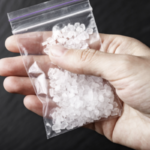A Mother’s Account of Her Son’s Ice Addiction: A Sydney Criminal Lawyers® Exclusive

At the end of last year I waited, wondering if – despite the reassurances of hospital staff – the police would take my missing persons report seriously.
My son had only disappeared that afternoon. However, he’d disappeared from the hospital where he was supposed to meet a friend of mine who was picking him up. He’d been in for a few days after being picked up by the police, high, minus ID, and incoherent.
It had been some days before the hospital could ascertain who he was and call me. He’d taken crystal meth, also known as ice.
I live in another state, and this was the latest crisis in a bit over a year of difficulties that had been building with my son after his job had disappeared in a re-allocation of government funding. Managing to support him emotionally from a distance had been hard, and there was obviously a lot he’d not told me.
The impact on family and friends
In this instance, the police were marvellous. They gave me a mobile phone number I could call around the clock for updates. They touched base regularly with me. They followed up all his known contacts.
He turned up a few days later, calling his housemate and announcing he’d be home that day.
But, he was high when he arrived, and then crashed. She was worried, angry and unhappy about the situation, and asked me to come. The drugs were a new element that she didn’t want to deal with – understandably. She was concerned for him, and what it might mean for her own security.
I rang the mental health unit and was able to speak with the psych nurse on duty. She gave me some guidelines for dealing with him, suggested some websites for me to look at to gain some understanding of ice and its effects.
To my knowledge, until this time, despite his many issues, drugs hadn’t been part of the picture. He could, and did, binge drink on occasion, but he’d shied away from anti-depressants when doctors recommended them, and avoided other substances. I don’t know what changed that resulted in making the choice to try ice.
The boy I found when I arrived at their house was not the boy I knew. He’s a highly gifted boy – could do anything he chose.
Emotionally, he’s had to deal with a lot, but even at his worst, he’s always been reachable.
Not that day. I saw behaviour I’d never seen from him before. There was a cold aggressiveness, his eyes were flat and angry, and he had a complete lack of interest in how his behaviour might be impacting anyone else. He just didn’t care – didn’t give a f**k – as he kept spitting at us.
The nurses at the mental health unit were marvellous. They stayed in contact with me. They spoke with him, came to see him, and gave him a phone to replace the one that had vanished the night he got high. He was rude and uncooperative when they offered him help with direction for job hunting and accommodation – his housemate wanted him to leave.
In the end, I managed to talk him into leaving with me to go back to the hospital, hoping that he’d be given a chance to dry out and have some intensive time with his shrink, and get himself headed back on track.
He walked out of the hospital after I left, and that was the last time I saw him. When he wouldn’t return my calls, I called the police again – they went looking for him again and found him this time. Rang me to say he was ‘okay’. Then I got an abusive message from him telling me to ‘bugger off’. That was the last time I heard from him. That was four months ago.
He’s twenty-three now. I can’t do anything about this situation. Any move for change has to come from him. All I can do is continue to send semi-regular texts to his number, hoping that at some point, he’ll realise I’m not the enemy, and will respond. He occupies a place in the front of my head, and I have to, figuratively, shove him out of the way in order to focus on anything else.
Every day, there is the possibility that I could get the phone call that every parent fears.
An out-of-control problem
Ice is one of the nastiest drugs out there, one of the most highly addictive. Usage is spiralling way out of control, and it’s happening fast.
Just after I got back from that trip, the Sydney Morning Herald ran an article about ice in NSW schools, with users getting younger and younger.
The article spoke about how fast addiction can happen – one or two hits can be all it takes. It profiled the personality changes users go through – and I found myself reading descriptions of the behaviour and attitudes I saw in my son. In a weird bit of cosmic synchronicity, as I’ve been writing this piece, another newspaper article has been published in Melbourne’s Herald Sun about the use of ice by footballers:
“Suburban and bush footballers are using ice as a performance¬-enhancing substance, with some getting the drug from their coaches, senior police have revealed.
Footballers are putting their lives in danger by using the drug just minutes before they run on to the field in some cases — often feeling “like Superman”.
Abusers are as young as 14 and in some teams, there are as many as nine players on ice, football administrators and police have told the Herald Sun.”
Use of this drug is increasing rapidly across the country, destroying young lives, and destroying families.
The associated crime and violence that can come with addiction to this drug can be appalling. Yet, this article suggests that there are people out there for whom the ‘benefits’ of the drug far outweigh the potential horrors.
How anyone in a position of coaching young football players can think this is okay is totally beyond me.
Not enough action
From my perspective, as a mother of an addict, I have experienced wonderful support and help from people at the front line – the police and mental health workers.
However, the country is in the grip of an epidemic that has the potential to ruin an entire generation of young people. It will take more than what looks, to me, like a few token efforts by government to set up programs in individual places.
Dealing with this drug and its impact will take some kind of draconian, zero tolerance solutions, the like of which we’ve not seen in this country.
I don’t know what form that might take, but I do know that that’s what it will take to save young people like my son from the predations of makers and dealers who are out to make money by killing other people.






